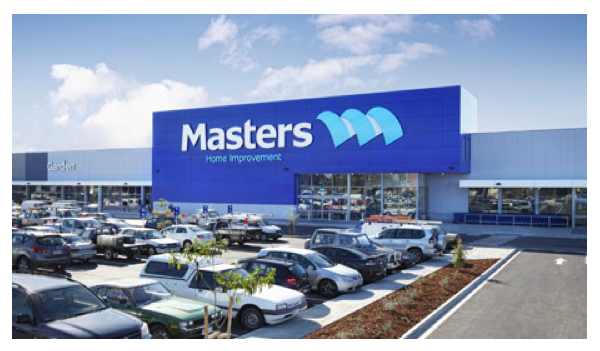 I’ve just been to Masters …. It’s the big new competitor of Bunnings. For anyone on the planet who doesn’t know Bunnings or Masters … it’s the new child of Coles & Woolworths supermarkets. It’s the equivalent to Tescos and Walmart of Australian hardware stores.
I’ve just been to Masters …. It’s the big new competitor of Bunnings. For anyone on the planet who doesn’t know Bunnings or Masters … it’s the new child of Coles & Woolworths supermarkets. It’s the equivalent to Tescos and Walmart of Australian hardware stores.
I can’t help feeling cynical. The big supermarket wars are on again!
I live only 10 minutes drive in a westerly direction from one Bunnings store and 10 minutes drive in a southerly direction from another one. Now, their equivalent giant competitor, has opened it’s doors only 10 minutes drive in a northerly direction from me. Scattered in between are a number of small independent hardware stores and nurseries.
It just makes me wonder how much landscaping, gardening, hardware and renovating materials can a community actually purchase?
These are the super-stores with massive quantities of anything and everything to do with the home. Shelves are piled high with every colour, variety and brand of pots, plants, timber sleepers, kitchen cabinets or toilet bowls that you could possibly imagine.
I felt discouraged and even sad as I walked out the doors back to my car.

I didn’t go there to buy anything, instead, I went there for a gawk, a sticky-beak, to see what the hype was all about. It confirmed all of my suspicions … and left me saddened by the experience.
I love gardening and actively encourage others to get down and dirty too. But I also love my community of local families, farmers, producers and small-business owners. What is going to happen to them? My fear is that as the big get bigger, the small go out of business.
A store as massive as Masters or Bunnings will only contract to suppliers who can handle the quantities they demand. So it puts the small wholesale businesses out of the running for any local support. Then, as shoppers switch to these giant super-stores because of price competition, our small retailers start to lose their clientele. Small businesses just can’t compete with price cutting strategies in the long term.
 Both Masters and Bunnings promote best price advantage.
Both Masters and Bunnings promote best price advantage.
To ensure price competitiveness, a company needs economies of scale to reduce the cost of inputs. Labour costs have to be minimized also, so we can possibly expect cheaper, younger, less qualified staff to be employed by theses giants. What happens to our qualified horticulturists then?
I’ve seen some incredible waste of products already at other larger stores when plants don’t sell. Overgrown plants with poor quality in-store handling and care become unsaleable and have to be thrown out. Empty shelves look bad for the retailer, so more stock is brought in to replace it, only to end up on the scrap heap again. What a waste.
The economists say it’s a matter of supply and demand and that competition will sort out an equilibrium. But when the market is driven by oligopolies like these then fair trading ceases to exist.
David slayed Goliath. The young boy beat the giant. Can we reproduce a biblical story and beat the supermarket giant? What pointy rock and slingshot are you going to use in the supermarket battle to ensure an equitable future for everyone?




 Twitter
Twitter Facebook
Facebook
Still, I noticed that the First Family is doing ltlite of the gardening themselves. i think we can find it in our hearts to forgive the president of the united states and his wife, if they dont have the time to do most of the gardening themselves.i think it is amazing that with two ltlite girls, a dog , a mother -in-law and a country to worry about, that they even have the intention of a garden, and sit down to eat their vegetables together every night!it is the right kind of hedge fund to teach the first daughters about!!!! hurray!!!!